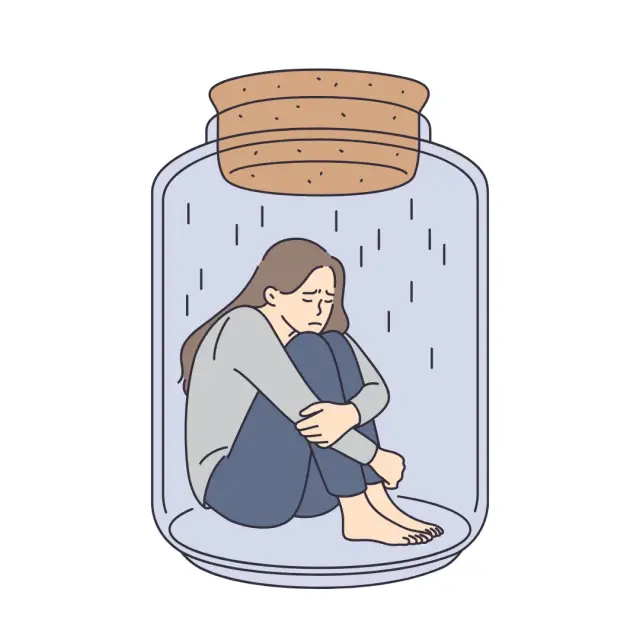Every January 13, World Depression Day invites us to reflect on one of the most prevalent mental health problems in the world. This day not only seeks to raise awareness about depression, but also to promote support, prevention and appropriate treatment. Depression does not discriminate; it affects people of all ages, genders and socioeconomic conditions, and its impacts can be devastating if not addressed properly.
What is depression?
Depression is a mood disorder characterized by persistent sadness and a loss of interest in previously enjoyable activities. However, it is much more than just feeling "sad" or "low-spirited." It is a clinical condition that significantly affects how a person thinks, feels, and handles daily activities, such as sleeping, eating, or working.
According to the World Health Organization (WHO) , more than 280 million people worldwide suffer from depression. Despite its prevalence, the stigma associated with mental health issues often prevents people from seeking help.
Main symptoms of depression
Symptoms of depression can vary in intensity and duration, but generally include:
- Depressed mood : Feeling sad, empty, or hopeless almost all the time.
- Loss of interest or pleasure : Disinterest in activities that were previously enjoyed.
- Changes in appetite and weight : Significant weight gain or loss may occur.
- Sleep disturbances : Insomnia or excessive sleeping.
- Fatigue or loss of energy : Feeling constantly tired for no apparent reason.
- Difficulty concentrating : Problems thinking, making decisions, or remembering details.
- Feelings of worthlessness or guilt : Excessive criticism of oneself.
- Suicidal thoughts : Suicidal thoughts or attempts.
Triggering factors
Depression does not have a single cause. It is the result of a combination of biological, psychological, and social factors. Some common triggers include:
- Traumatic events : Such as the loss of a loved one, a divorce, financial problems, or a job loss.
- Genetic factors : A family history of depression may increase the risk.
- Chemical imbalances in the brain : Alterations in neurotransmitters such as serotonin and dopamine.
- Chronic medical conditions : Diseases such as cancer, diabetes or neurological disorders may be linked to depression.
- Substance use : Alcohol or drug abuse can contribute to the development of this disease.
The impact of depression
Depression affects not only the person who suffers from it, but also those around them. Personal relationships, work performance and overall quality of life can deteriorate significantly. It is also a major risk factor for suicide, one of the main causes of death among young people aged 15 to 29.
Treatments and strategies to combat depression
Although depression can be debilitating, it is treatable. There are several treatment options, which are usually tailored to each person's individual needs:
Psychological therapy :
- Cognitive behavioral therapy (CBT) is one of the most effective therapies for depression. It helps to identify and change negative thought patterns.
- Interpersonal therapy focuses on improving personal relationships and resolving emotional conflicts.
Medications :
- Antidepressants may be helpful in moderate to severe cases, especially when symptoms interfere with daily life.
Lifestyle changes :
- Regular exercise: Physical activity increases the production of endorphins and serotonin.
- Balanced diet: A nutrient-rich diet contributes to mental health.
- Adequate sleep: Rest is essential for emotional well-being.
Alternative therapies :
- Relaxation techniques such as yoga, meditation and mindfulness.
- Light therapy, especially useful for seasonal depression.
Support networks :
- Talking to family, friends or support groups can make a big difference.
The role of society in World Depression Day
Society has a key role in the fight against depression. Some key actions include:
Reducing stigma : Talking openly about mental health can help normalize the conversation and encourage people to seek help.
Education and awareness : Educational programs in schools, workplaces, and communities can increase understanding about depression.
Public policy advocacy : Governments must ensure access to quality and affordable mental health services.
Community support : Creating environments where people feel valued and heard can prevent loneliness and isolation, which are risk factors for depression.
Stories of overcoming
On this World Depression Day, it is important to highlight the stories of people who have faced this illness and have come out on top. These stories inspire hope and show that, with the right treatment and the necessary support, recovery is possible.
World Depression Day reminds us that mental health is just as important as physical health. It is a call to action for everyone, from individuals to governments, to work together to combat this illness. While depression can seem like a difficult mountain to climb, with support, resources and understanding, no one has to face it alone.
If you or someone you know is struggling with depression, don't hesitate to seek help. The first step, though difficult, is also the most important one towards a full and healthy life.
